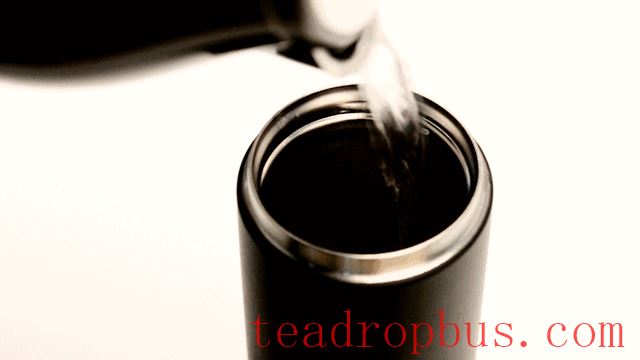Enjoying Tea is a pleasure, and the method of brewing directly impacts the taste and overall experience. In recent years, stainless steel tea balls have become a preferred tool for many tea enthusiasts. So, is a stainless steel tea ball good for brewing tea? Today, we will delve into the advantages and disadvantages of stainless steel tea balls as well as provide some usage tips.
Advantages of Stainless Steel Tea Balls
The popularity of stainless steel tea balls stems from several significant benefits:
1. Safe and Hygienic Material
Stainless steel is a safe, non-toxic, and corrosion-resistant material. Compared to plastic or silicone, stainless steel does not release harmful substances in high-temperature environments, ensuring health and safety during the brewing process. For tea lovers, the safety of the material is very important.
2. High Durability
Stainless steel tea balls are robust and resistant to deformation or damage. They maintain their good condition even after long-term use, unlike materials that can age or deteriorate easily. This durability makes stainless steel tea balls highly cost-effective, with one purchase lasting a long time.
3. Easy to Clean
Cleaning Teaware is a concern for every tea enthusiast. The smooth surface of stainless steel tea balls resists the buildup of tea stains and odors. After use, they can be simply rinsed or placed in a dishwasher for thorough cleaning, which is both convenient and time-saving.
Disadvantages of Stainless Steel Tea Balls
While stainless steel tea balls have many advantages, they are not without flaws, presenting some drawbacks in use:

(Image source: Network, delete upon request)
1. Impact on the Taste of the Tea Infusion
Due to the characteristics of the material, stainless steel tea balls may affect the aroma and taste of certain teas. Especially for premium teas that require complete aroma release, the airtightness of stainless steel tea balls might influence the overall performance of the tea.
2. Limitations on Types of Tea
Stainless steel tea balls have limited space, making them suitable for finer or smaller leaf teas. For larger, looser teas such as Longjing or Biluochun, stainless steel tea balls may not allow the leaves to fully unfurl, affecting the strength and taste of the infusion.
3. Fast Heat Conduction
Stainless steel conducts heat well, which can be both an advantage and a drawback. When brewing tea, stainless steel tea balls quickly become hot, so caution should be taken to avoid burns, especially when brewing at high temperatures for extended periods.
How to Properly Use a Stainless Steel Tea Ball for Brewing Tea
To make the most of the advantages of stainless steel tea balls and mitigate their drawbacks, consider the following usage tips:
1. Choose the Right Stainless Steel Tea Ball
There are various sizes and designs of stainless steel tea balls available on the market, and choosing one suitable for your type of tea is crucial. Generally, larger tea balls with more openings ensure that the leaves fully unfurl and produce a rich infusion.
2. Control Brewing Time
Different types of tea require different brewing times. Adjust the brewing time based on the type of tea you are using to avoid over-brewing, which can make the tea bitter, or under-brewing, which can prevent the full release of flavors.
3. Pay Attention to Water Temperature
The temperature of the water used for brewing greatly influences the taste of the tea infusion. Green and white teas require lower temperatures, while black and oolong teas need higher temperatures. When using a stainless steel tea ball, pay special attention to controlling the water temperature to avoid damaging the tea or preventing it from fully releasing its flavors.
4. Cleaning and Maintenance
Clean the stainless steel tea ball promptly after each use to prevent the accumulation of tea stains, which could impact future brews. Conduct deep cleaning regularly by soaking the tea ball in baking soda or lemon juice to keep it clean and hygienic.
Scenarios for Using Stainless Steel Tea Balls
Stainless steel tea balls are suitable for a variety of settings, not just home brewing. Here are some common scenarios:
1. Office
Using a stainless steel tea ball in the office is very convenient. It is compact and easy to carry, takes up minimal space, and is simple to clean, making it ideal for busy work environments.
2. Travel
A stainless steel tea ball is a great companion for travel. Whether on business trips or vacations, it is easy to carry, allowing you to enjoy a good cup of tea anytime, anywhere.
3. Outdoor Activities
Those who enjoy outdoor activities can also consider using a stainless steel tea ball. Its durability and resistance to damage make it suitable for use in the wilderness, camping, and other outdoor settings, satisfying your desire to drink tea in nature.
Conclusion
A stainless steel tea ball is a convenient, safe, and durable tool for brewing tea, suitable for use in various settings. Although there are some minor drawbacks, with proper use and maintenance, a stainless steel tea ball remains a recommended choice for brewing tea. If you haven't tried a stainless steel tea ball yet, give it a go and enjoy a cup of tea prepared with care!